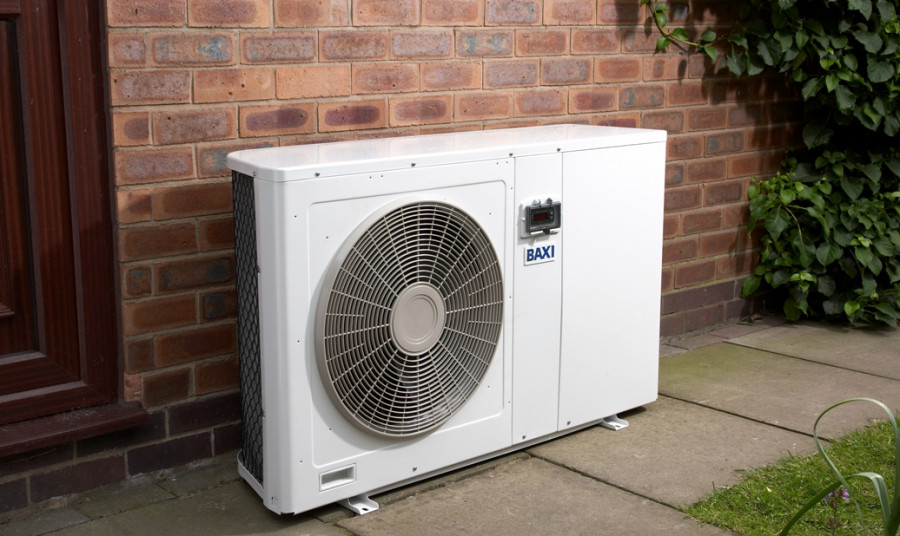Last Updated on June 12, 2024
Earlier this year, the UK’s Minister for Energy Efficiency and Green Finance announced that applications for the Boiler Upgrade Scheme (BUS) nearly doubled from April 2023 to April 2024.
Despite its name, the BUS primarily provides funding for heat pumps, though it also supports biomass boiler installations.
As interest in heat pumps continues to grow nationwide, many households are asking whether a gas boiler or heat pump is the best option moving forward.
In this guide, we’ll look at the pros and cons of gas boilers and heat pumps, considering key aspects including their efficiency, installation and running costs, and practicality. Let’s begin!
Gas Boilers Vs Heat Pumps in the UK Key Points:
- Popularity: Gas boilers remain far more popular, though heat pumps are on the rise.
- Efficiency: Heat pumps provide efficiency levels of around 2 to 3 times that of gas boilers.
- Running Costs: Despite higher efficiency levels, the cost of electricity renders the price of running a heat pump higher than that of a gas boiler.
- Eco-Friendliness: Opting for a heat pump is the more eco-friendly choice.
- Government Support: There are government support and funding options for both gas boilers and heat pumps.
The Installation Cost and Process
Starting with the cost and installation process, gas boilers are easier and more affordable to have installed.
In either case, however, a professional is needed to perform the installation work. And, of course, the cost and process of installation are just one aspect of weighing up the pros and cons of gas boilers and heat pumps.
Having a gas boiler installed will often cost somewhere in the region of £500 to £4,000.
As for the installation timeline, it may take a day or less, though in some cases it can take up to 2-4 days depending on the complexity of the fitting process.
It may take longer to have a gas boiler installed if you’re looking to have one type of boiler swapped out for another (e.g. heat-only to combi boiler).
On the other hand, air source heat pumps generally cost somewhere in the region of £10,000 to £22,000 in labour and supply costs.
This total price rises to about £18,000 to £25,000 in the case of a ground source heat pump.

Image source: Baxi.
The total price can be reduced through schemes like the Boiler Upgrade Scheme (BUS) if eligible.
In the case of the BUS, certain households in England and Wales are eligible to have the price of a heat pump installation cut by £7,500.
It generally takes around one to five days to have a heat pump installed, with ground source heat pump installations taking longer than in the case of their air source counterparts.
Related heat pump guides:
Running Costs Compared
On average, it costs £0.06 per kWh to run a natural gas boiler, whereas the price of electricity is about £0.22 per kWh.
Again, while heat pumps are significantly more efficient, the price gap overrules the efficiency difference, meaning that bills associated with heat pumps are still higher than with gas boilers.
The cost of running a heat pump is one of the clear drawbacks of this new, low-carbon technology.
However, there is hope for costs coming down in the future should heat pumps become more efficient or/and renewable technology help lower the price of electricity.
Another consideration is that if you were to power a heat pump with on-site renewable technology, you could drastically cut or even eliminate your heating bills.
That said, to what extent a given setup (e.g. solar panel array) could affect your heating bills would depend on the capacity of the installation and your heating needs.
Also, the solar panel system would need to be quite large to realistically meet a household’s heating demands.
Sufficient leeway would be important to avoid your heat pump losing power when your heating is in high demand.
Alternatively, it’s possible to power a heat pump partially using on-site renewables and partially through the energy grid.
Safety Considerations
Note: Whether you opt for a gas boiler or heat pump, having the appliance serviced annually by a professional is very important to ensure safety.
Heat pumps are the clear winner when it comes to safety. While heat pumps are powered by electricity, the utilisation of gas for gas boilers comes with an array of hazards.
One risk associated with gas boilers is general gas leakage. If natural gas leaks into a property, it will pose an explosion hazard should a spark, naked flame or other source of ignition meet the leaking gas.
Another problem with gas boilers is the potential for a carbon monoxide leak.
Notably, carbon monoxide poisoning results in thousands attending A&E annually and dozens of deaths.
Of course, this danger in particular emphasises the need for plenty of carbon monoxide detectors to protect you and anyone else in your home.
It is advised that a carbon monoxide alarm be placed in any room that uses a fuel-burning appliance, at least one on each floor and one within five metres of any bedrooms.
Heat pumps do come with their own risks but are generally considered safer. That said, to reiterate, annual heat pump servicing is still key to limiting hazards.
Some of the potential dangers posed by heat pumps include fire risks and pollution resulting from a refrigerant leak.
Efficiency Levels
Heat pumps tend to come with efficiency levels ranging from 200% to 300%, though some can reach closer to 400%.
It’s important to note that efficiency levels can differ throughout the year if opting for an air-source heat pump.
This is because these heat pumps harness energies from the surrounding air; thus, when temperatures drop, there is less heat to extract energy from.
The good news is that ground source heat pumps benefit from stable temperatures all year round, being installed beneath the surface and harnessing the Earth’s thermal energy.

Image source: Worcester Bosch.
Therefore, the ground source option comes with reliable and stable efficiency levels throughout all four seasons.
On the other hand, modern gas boilers offer efficiency ratings of between 90% and 97%.
Any gas boiler with an efficiency rating of 90% or more is classed as an A-rated boiler; however, older gas boilers can have efficiency levels of 60-70%.
That said, old, inefficient gas boilers should not be used at this stage as due to wear and tear, they are not only low in efficiency but arguably too unsafe to continue using after so many years. This is even with annual boiler servicing.
Funding and Supports Compared
Various forms of government support exist to financially back a gas boiler or heat pump installation.
The funding available for a gas boiler installation includes the following schemes:
If unsure whether or not you are eligible for any of the above schemes, contacting your local council can provide clarity.
For eligible households seeking a heat pump instalment in England or Wales, there exists the Boiler Upgrade Scheme (BUS).
This scheme can slash the price of a heat pump installation (whether an air source or ground source version) by £7,500.
If you are not based in England or Wales or otherwise aren’t eligible for a heat pump instalment, again, you can always enquire with your local council to find out if you are eligible for any local or other governmental support for a heat pump installation (e.g. the ECO4 Scheme).
Eco-Friendly Comparison
When it comes to environmental impact, heat pumps are the clear winner.
While the electricity used to power heat pumps will generally be associated with carbon emissions, gas boilers are still more carbon-intensive.
What’s more, unlike natural gas or LPG boilers, heat pumps can be powered by zero-carbon electricity.
This is possible by opting for a green energy provider that offers electricity generated using renewable technologies like solar or wind.
Alternatively, some households may wish to power their heat pump with on-site renewable tech like a solar panel array.
Of course, as discussed, it’s important to ensure that such a setup is sufficient to avoid the heat pump crashing from a lack of power.
Summary
As you can see, there is a case to make for both options. Ultimately, whether a gas boiler or heat pump will suit you best will depend on your budget, needs, and preferences.
On the one hand, gas boilers are cheaper to purchase and run. However, not only is there significant potential for heat pumps to become more affordable with time, but they also offer further benefits, including improved safety and a lower carbon footprint.
Whether or not a heat pump could prove a worthy investment will depend on your key criteria.
In terms of whether or not a heat pump could be a valuable financial investment over time, it will depend on to what extent the price of electricity may come down over the next 10+ years and whether or not heat pumps will see their efficiency increase further.
With uncertainty surrounding the future installation and running costs of heat pumps, gas boilers remain a safe bet.
However, there is still a strong argument for investing in a heat pump now as the UK works towards carbon net zero by 2050.
After all, new natural gas boiler installations are likely to be phased out in the future. With all these considerations, it is again a personal choice that should involve carefully weighing up the pros and cons of heat pumps and gas boilers alike.